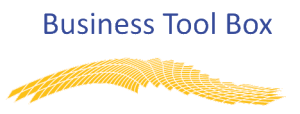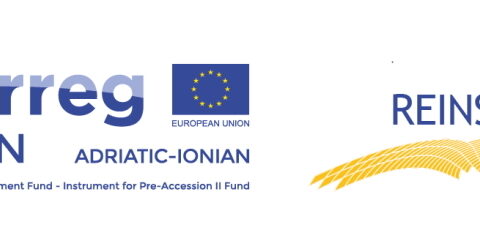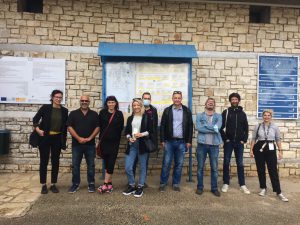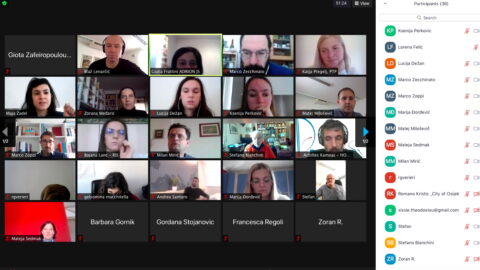Between the 19th and the 21st of October 2021, the second study trip to Ruma, Serbia was organized for the partners in the project Refugees Economic Integration through Social Entrepreneurship (REINSER). The purpose of the trip was to explore the possibilities of transferring the identified best practices in the field of integrating refugees through social entrepreneurship in host societies of ADRION program area. Due to Covid-19 restrictions, some of the participants joined the panels and discussions online.
Three workshops and a panel were organized on the first day of the study trip, within which the project partners discussed how the six partner states are tackling employability of migrants, the legal framework for migrants’ entrepreneurship and the potentials for further development of social economy, specifically in Serbia. The first panel gave insights into local responses to refugees’ integration in Serbia, especially the initiatives of the Municipality of Šid within the project ALMIT- Acceleration of Labour Market Integration of immigrants through mapping of Skills and Training project as well as Red Crosses in Vojvodina activities during the migrants’ crisis.
The second day of the study trip started with a panel presenting six best social enterprises in Serbia and other partner states, such as Sodare Filipus in Serbia, Zeleni incubator in Croatia, Progetto QUID in Italy and Yalla Trappan from Sweden after which the possibilities of their transferability from one partner country to another were discussed. The project partners carried on with visiting Texeco, the textile recycling company in Sremska Mitrovica.
Social entrepreneurship from a different and a wider perspective, a panel divided into three sections, marked the third day of the study trip, and it mainly gave insights into the ways of starting and running a social enterprise. Finally, the last day of the study trip was dedicated to Project team meeting, recapitulating on progress made and upcoming tasks as well as producing detailed information on institutional conditions and opportunities for social entrepreneurship in the second part of the agenda.





